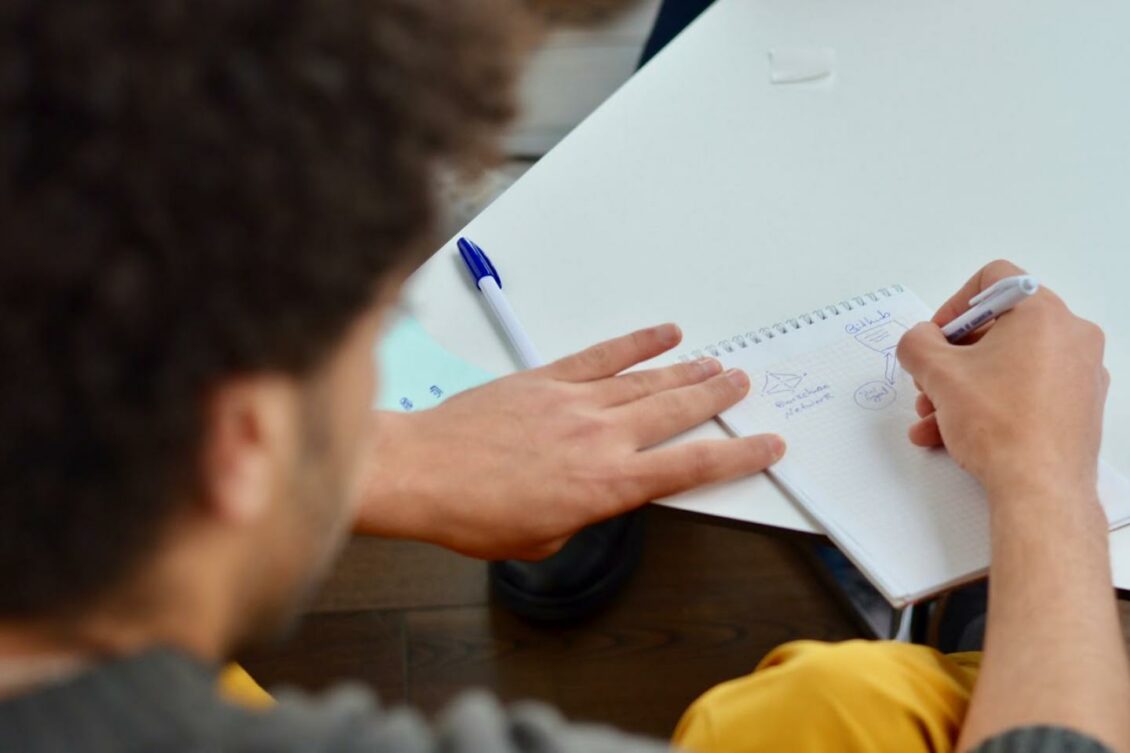It has been six months since UNICEF announced a cohort of six companies to receive seed funding from UNICEF’s Innovation Fund.
The companies are blockchain start-ups and are being supported by UNICEF’s Innovation team for twelve months. The start-ups are Atix Labs (Argentina), OS City (Mexico), Precrypto (Mexico), StaTwig (India), W3 Engineers (Bangladesh) and Utopixar (Tunisia).
Throughout this experience, UNICEF is leveraging the learnings and growth of the companies to better understand how blockchain can be used in developing and emerging economies. The start-ups are leveraging the technology to improve organizational efficiencies, streamline decision-making processes, and build transparent workflows.
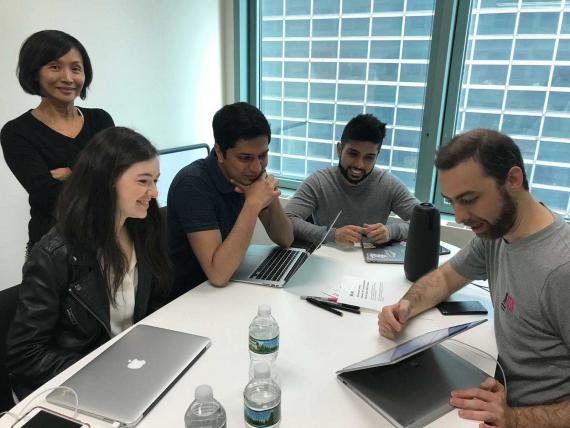
Atix Labs working with UNICEF Innovation fund team during the recent UNICEF blockchain workshop in New York
Atix Labs (Argentina):
Atix Labs is developing the Circle of Angels platform for small to medium-sized enterprises to gain access to funding while creating traceability in where the funds are used and measuring impact.
Key Highlights
- Developed the first live prototype to match investors with impact enterprises tracing and tracking impact over time with enhanced user experience.
- Throughout this prototype, two impact enterprises were successfully matched with angel funders. These enterprises have been tracking their milestones through the platform that Atix has created.
- Continuing to grow the number of angel funders on the platform across the globe to increase support more enterprises.
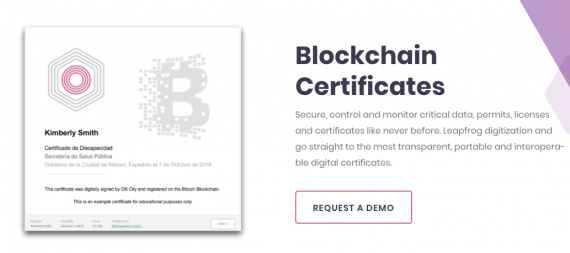
Snapshot of a blockchain certificate via OS City
OS City – previously OneSmart (Mexico):
OS City (Mexico) is addressing the misappropriation of funds in emerging markets with the scale of its prototype, which uses blockchain and AI to increase transparency and accountability of government resource allocation.
Key Highlights
- A platform has been created to issue certificates on multiple blockchains (Bitcoin, Ethereum, RSK, Argentinian Federal Blockchain) with a user experience that focuses on ease of adoption and easy understanding of blockchain.
- Issued 3495 certificates on the blockchain displaying impact in areas such as money traceability, government licensing, social support traceability, energy trustable records, and mobility intermediation.
- Signed two anti-corruption certificates contracts in Mexico (San Nicolas Government), two educational certificates in Argentina (UPSO, BDS), and renewed one anti-corruption certificate contract in Chile (CNE).
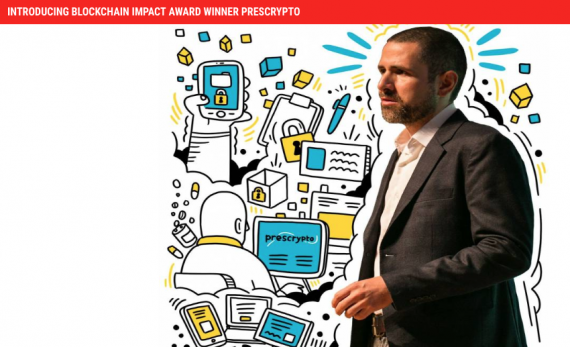
March 2019 – Newsweek Blockchain Impact Award winner: Prescrypto
Prescrypto (Mexico):
Prescrypto is providing a digital solution to the lack of electronic prescriptions in developing countries with a platform that allows medical service providers to view one common history of a patient, and improve the level of care.
Key Highlights
- Prescrypto has created an app that posts prescriptions on a blockchain, where sensitive data is only shared if there is explicit consent from the MD of a patient; the platform can also be used to track the usage of various prescriptions without compromising the identity of the user.
- Over the past 6 months, Prescrypto has integrated with:
- A brick and mortar pharmacy showcasing positive results
- Amazon México for delivery of medications
- Signed letters of intent (LOIs) with distribution partners in Chile and in Mexico.
- Currently, also working towards 2 more ongoing similar integrations.
- 1128 medical doctors have registered, 8290 new monthly medical prescriptions have been processed through the platform and 115,000 impacted patients have been impacted by the platform.
- Awarded a Blockchain Impact Award by Newsweek in March 2019.
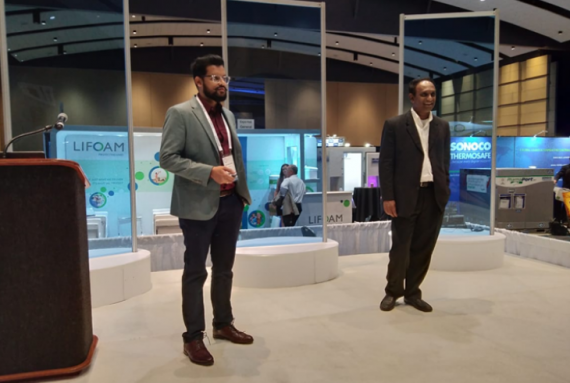
Statwig team in action
StaTwig (India):
Statwig is using a blockchain-based solution to ensure the efficient logistics delivery of vaccines through an enhanced supply-chain management system.
Key Highlights
- The platform is now able to monitor the temperature, location, purchase orders, and invoices of the vaccines that are recorded, using blockchain technology.
- Beginning July 15, the platform is scheduled to be tested in 22 villages in 5 districts
- An MoU has been signed with the University of California, Berkeley for the Smart Village Initiative; the company was listed as one of the finalists for GAVI Infuse 2019, and was also selected for the CIIE Accelerator by IIM Ahmedabad and Cisco.
- Newsweek Blockchain Impact Award runner up in March 2019.
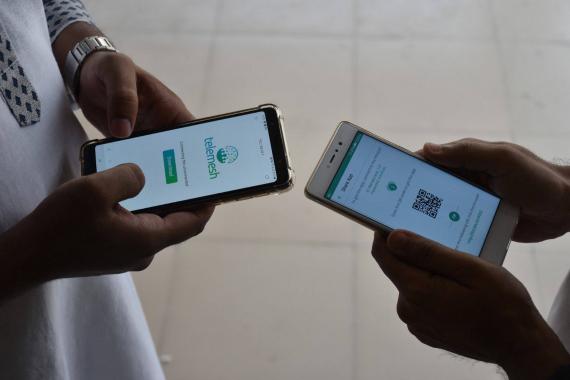
W3 engineers team testing telemesh app on two mobile devices
W3 Engineers (Bangladesh):
W3 Engineers is building a mobile connectivity platform. It allows users within the network to give connectivity access to other users directly between smartphones, instead of relying on internet and cell networks.
Key Highlights
- W3 has strengthened their platform prototype to interact with one another without SIM cards
- A pilot requirement plan was accepted by UNICEF Bangladesh; W3 will be piloting the application in the coming months
- Discussions have continued with Mercy Corps around collaboration on product
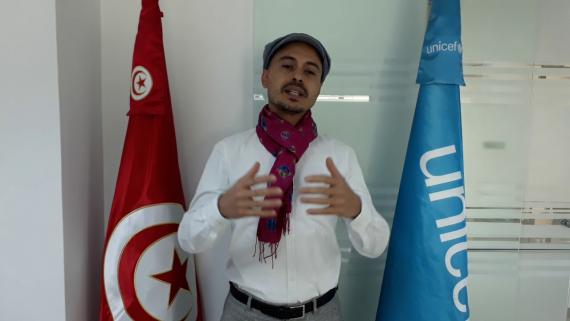
Karim Chabrak, Manager, Utopixar at UNICEF Tunisia being interviewed
Utopixar (Tunisia):
Utopixar is working on a platform that will deliver a social collaboration tool for communities and organisations to facilitate participative decision making and value transfer.
Key Highlights
- The platform uses blockchain technology to enable users to issue, distribute, and exchange their own impact tokens.
- The impact tokens represent contributions to projects that address the challenges faced in education, youth employment, environmental and societal issues; the tokens can be redeemed in the form of currency or discount vouchers in different marketplaces through the platform.
- Currently, the platform has 160 causes, 820 users (many of whom are young people) supporting the causes, and 42 offers and merchants in the marketplace accepting coins for products, services and discounts.
The start-ups that receive funding through UNICEF’s Innovation Fund join the investment portfolio for 12 months. During this period, they receive up to $100K in tranches as well as business, product, and technical mentoring, communications and story-telling support and introductions to relevant potential partners, amongst other things.
Over the next 6 months of the portfolio experience, the blockchain companies will be working on completing their solution prototypes, and will continue testing in the field. Also, the companies will be seeking follow-on funding to continue their work.
At the end of the 12 months (February / March 2020), UNICEF’s Innovation team will be organizing an online demo so that people can learn more about the start-ups, the products that they are building, and the problems that they are solving. Webinar attendees are typically stakeholders interested in investing in or partnering with one of the portfolio companies.
- To join the waitlist for the online demo, please sign up here.
- To learn more about UNICEF and its work with blockchain, visit here and to learn more about UNICEF’s Innovation Fund, check it out here.
